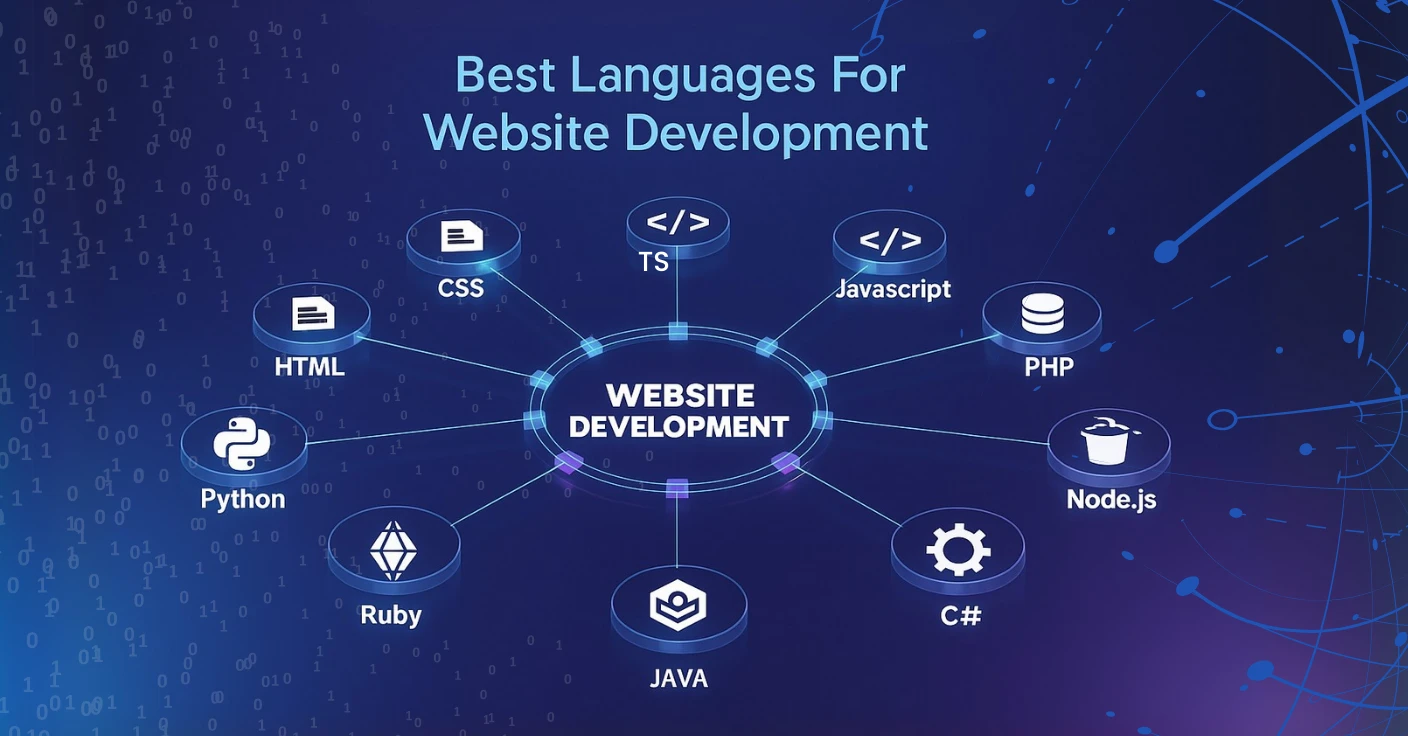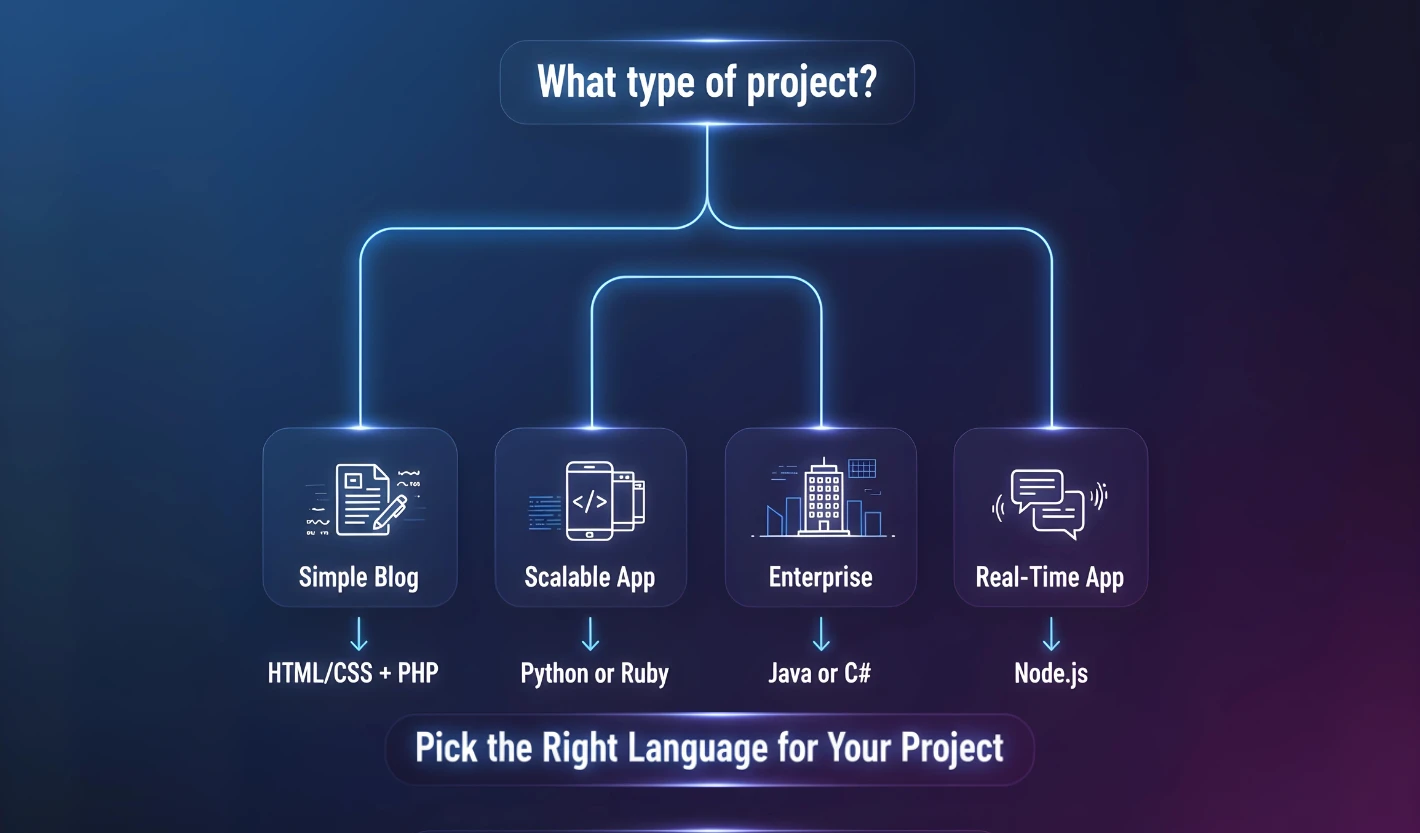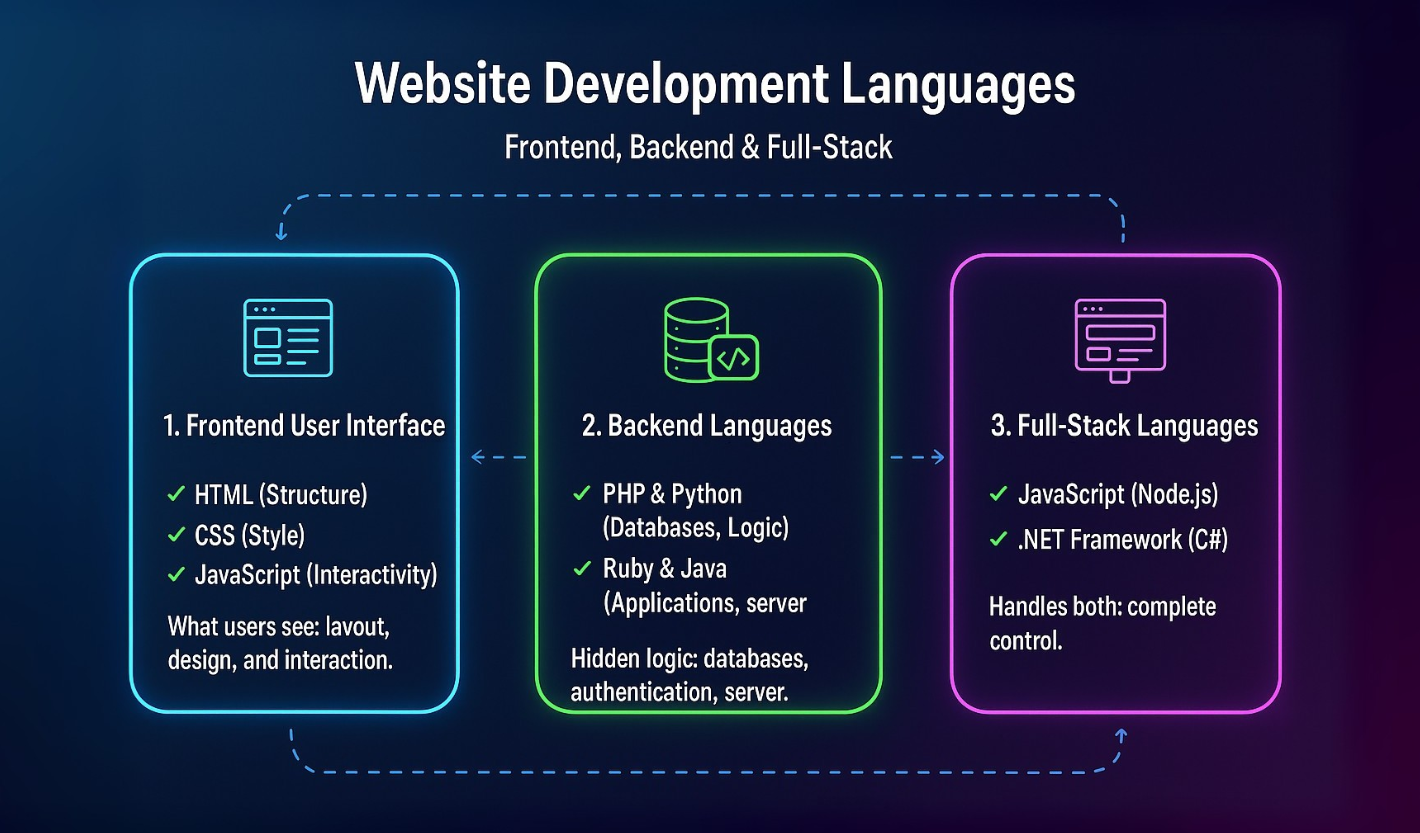

Are you ready to disrupt with AI? Join our Hackathon today! Click to Register
By WebOsmotic Team | Published on September 9, 2024
Summarize Article

Table of Contents
ToggleThe best languages for website development are HTML, CSS, JavaScript, Python, PHP, and Ruby. HTML and CSS structure and style the site. JavaScript enables interactivity. Python and PHP power server-side logic. Ruby offers rapid development with frameworks like Rails.
Website development has become an important capability for firms, developers, and creatives in today’s digital world. Whether creating a simple personal blog or a sophisticated e-commerce site, succeeding with website development is crucial when selecting appropriate programming languages. This guide will show you some of the best website development languages and how they affect the current web.

Understanding the function of programming languages in website development is necessary before delving into details. A website is made up of three key components: structure, styling, and interactivity. Different programming languages for web development have been designed to address each component differently.
Let us take a closer look at the Best languages for website development:

HTML is the backbone of the web, and it’s used to create the basic structure of websites. It’s not a traditional programming language but a markup language.
Each webpage that you visit is written in HTML, hence its importance. It’s the first segment for every website, and without it, an internet site can never be imagined.
• But who can use it: novices and persons making use of static web pages.
On the other hand, whereas HTML provides structure to your site CSS does lay down style and format. It defines what web pages look like by controlling fonts, color schemes, spacing, etc.
• Why It Matters: Using CSS enables one to have greater control over how their website appears. Anyone looking to create visually appealing sites has to possess this important skill.
• Who Should Use It: Graphic designers who are preoccupied with beauty.
When it comes to adding interaction to your website, JavaScript is probably the best language for web design. JavaScript makes your website dynamic with animations and forms as well as interactive maps and games.
• Why It’s Important: For improved user experience, nearly every modern-day site leverages JavaScript. It can update content, control multimedia, and even manipulate HTML and CSS for asynchronous requests.
• Best for: Both frontend and backend developers, thanks to frameworks such as Node.js that support server-side scripting.
Among the most popular languages used in developing websites is PHP especially in server-side applications which utilize it a lot due to its efficiency in handling databases. This makes WordPress many content-heavy websites on the internet run in this language.
•Why It’s Important: It is commonly supported by hosting platforms and works well with MySQL among many other database types. Hence many developers handling back-end logic use PHP extensively when building web applications.
• Best for: Websites requiring database interaction and content management.
Python increasingly become a widespread programming language when it comes to website development. A number of its famous web frameworks such as Django or Flask account for this rise. It is very simple and readable hence suitable for developers at all levels.
Ruby alongside Ruby on Rails, its web application framework, is another common option for web development. This language is centered on simplicity and productivity which enables software engineers to write clean code that can be easily maintained.
As previously stated, JavaScript is a versatile programming language that can be used for front-end and back-end development equally well. It is now considered one of the best website development language and full-stack development through Node.js. A server-side environment allowing JavaScript to run, Node.js enables developers to write the same code across the stack.
• Why It’s Important: With node.js web developers can build their websites faster than ever before as it is event-driven which caters well to real-time applications such as chat systems.
• Best for: Full-stack developers especially those involved with real-time scalable apps.
Java is a robust backend programming language based on objects and classes. This makes it ideal for use in enterprise applications and many large-scale websites.
• Why It’s Important: Its stability and scalability make Java more suitable than other languages when there are large amounts of traffic involved. In addition, this is another reason why major companies prefer using it because they can run it on multiple platforms.
• Best for: Applications requiring enterprise-level or scalable attributes in addition to web apps.
Developed by Microsoft, C# is an object-oriented programming language that can be used for a variety of purposes. It is mostly used in creating web applications based on the .NET framework. This language tends to work well when designing intricate dynamic sites.
• Ideal for:- Developers who create complex websites aimed at large organizations.
Choosing programming languages for website development can be quite a daunting task as it’s not easy to come up with any language that suits all designs alike. It is because all languages used in web development have their strengths and weaknesses depending on your project requirements, your ability to scale as well as your knowledge. To better understand which one is the best fit for your next endeavor, it helps to know how different programming languages function in the development of websites and today’s web apps.
Unlock exclusive insights and expert knowledge delivered straight to your inbox